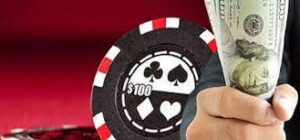Betplessness in Texas Hold'em Poker - What is it and Why Doesn't Everyone Win?
Is everyone a loser at poker? Have you ever watched a poker player go on "tilt"? You know the rest of the story. They start talking big or start going on tilt. Maybe they even go on tilt for the next few hands. It can be anywhere from green to red or back and forth. Even for famous players, everyone has bad beats.
In the good old days, a lot of people had to make a living off of playing poker. I played with many of them. What would make it easier for a professional poker player then a store owner to understand the game of Texas Hold'em? Maybe it would be if I tell you that most of these pro's that were beating me were young when they started playing poker. Maybe.
In any event, the term stuck. It has stuck in our language and we use it when something is shady or illegitimate. So where did it come from and where did it come from Gus Hansen? Well, the word hi came from a group of champions in poker who worked together during the 70's.
The four men of the team were Scotty Nguyen, DavidNEt, SteveKK andRickETer. You may know them now as the Howard Lederer, Phil Ivey, Johnny Chan and Allen Cunningham.asked Gus Hansen what the secret was when he was in the latter years of his life. He answered:
"I had three blinds in the early stages and decided to call to the River. The cards improved my hand so I checked. The player under the gun checked. It ended up being $4000 for the pot. There was $100 in the pot before I went on so I called knowing that I'd get it back. I ended up bringing $720 home in a surprising hand."
In Hanson's Own words, this was the hand that made Hansen "one of the biggest winners in Info Rtp Live Hari Ini history."
"When I saw the hole cards, I knew I was beat. But in the heat of the moment, I made a poor read and called an all-in bet on the River almost betlying. I lost only $28 beating a pro like Gus Hansen. A strange thing happened on the way to the Blinds. I got 2 small Blinds that require pot control to make a lot of money. The Small Blind folded and the other player instantly called, also risking his small blind to call. I was sitting on the BB and got a great card when the other player bet the pot. I raised putting him all-in and he called quickly. I got a flop of Kc-5c-3h. Although I had great pot odds, I didn't really want to risk a large part of my stack on the hand. To make a long story short, I lost the hand when my set of Aces couldn't hold up against his set of 5's. After I told my story to Gus, he gave me $1,000.
Unfortunately for me, the money wasn't big enough to set in stone. As luck would have it, the next night I was at the Low Bar and appointed myself the banker. I tried to stick to the same strategy as the previous night, but weakness was still there. When the cards came out, I would get a little too confident and raise too fast and everybody would fold. Maybe I should have fast played the hand, but my slow play had caused the other players to loose a lot of money. Just when I was hoping to become a big chip leader, I went all-in with 8-7 suited. Nobody much Daredevil at the table, except for Gus. At that moment he became the king of the Crazy 4-2!
After that, I tried to work on my strengths and weaknesses. Of course, I got better. I also developed a tell. When I raised pre-flop with hands like A-9 or K-Q and the flop would come Q-7-2, I would look at the chip stacks of the players still in the hand. If a large number of chips were piled up in front of me, I would let my hands go to the flop. When the flop would come Q-5-2, I would get an insistent signal and fold. For the most chips, especially the ones that never stayed put, they had to get out. Sure enough, by the time the turn and river came, they were done for. It took me a long time to build my chip stack to where I needed to get to in order to win a tournament, but I did it.
After these experiences, I began to trust my instincts. I also learned what to do and what not to do with certain hands. Eventually, I developed patience and began to play patiently.

